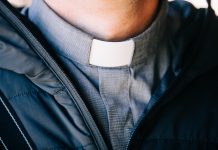02/13/2021 Egypt (International Christian Concern) – Just over 10 years ago, Egypt’s January 25 revolution began. The months and years that would follow would bring significant change to the political landscape and laws for Christians and minorities in Egypt.
Notably, many laws were passed for state of emergency situations or ones that expanded the role of the President and the military. Issuance of “state of emergency” is quite common in Egypt, with one lasting from 1981 to 2012. Egypt has remained in a state of emergency since April 2017. As government oversight grows, so does fear of legal implications and potential retribution for religious expression and freedom of assembly.
Law 83 of 2013 amended the provisions for the Criminal Procedure Code allowing for indefinite pre-trial detention in appeal cases of life imprisonment or death sentences. Then in 2014, a new Constitution was ratified that placed freedoms of thought, assembly, protest and others under a caveat of being allowed “in accordance with the law”. The vague and opened ended laws allow for more restrictive implications as desired by the government.
Christians and churches were significantly impacted by the Church Construction Law of 2016 that subjects them to a separate and unequal regulatory system with inconsistent application. Egypt’s Penal Code also subjects Christians unequally to the potential for criminal charges. These include things like blasphemy, which may land any charged Christian in jail for a significant period of time.
Open Door’s 2021 World Watch List places Egypt in the top 20 countries persecuting Christians. Its recent report cites dictatorial paranoia as the source of persecution, a trend seen in the past 10 years of laws as it becomes increasingly a surveillance state under states of emergency.















